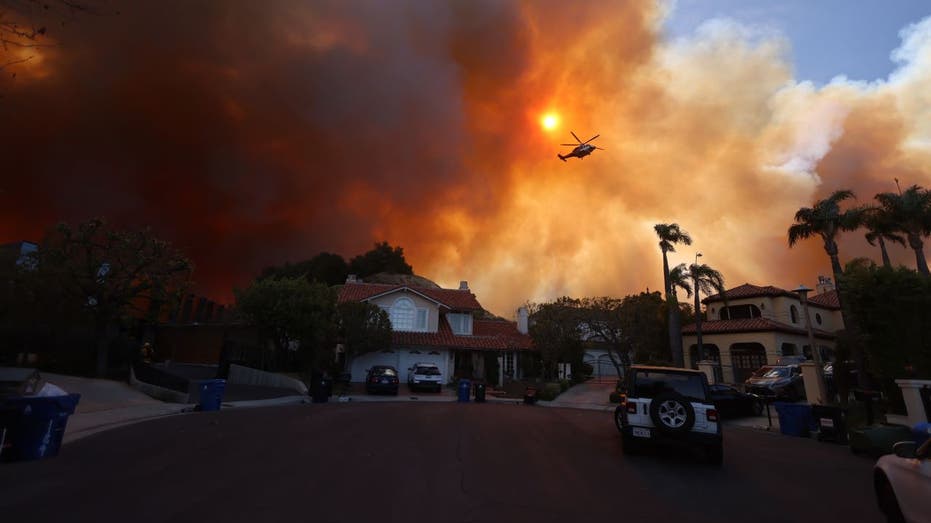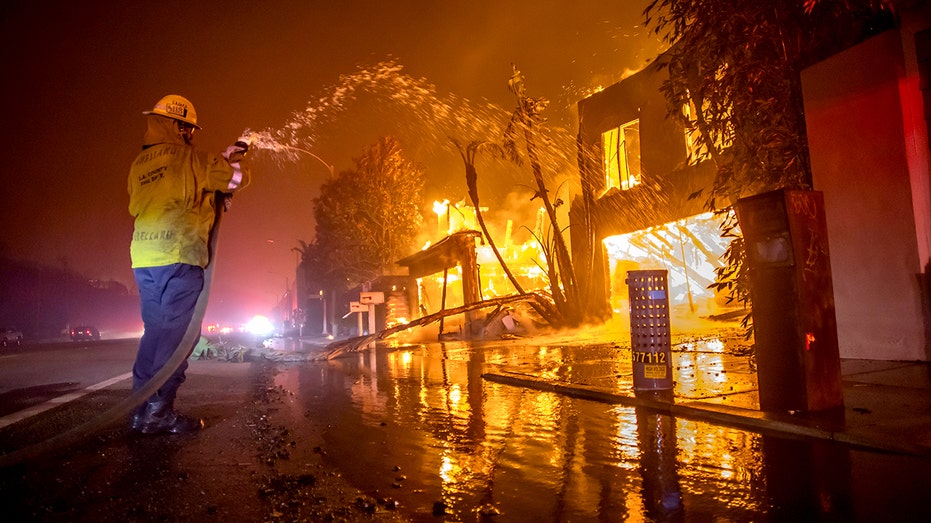California attorney general warns of price gouging, scams amid wildfires: What to know
Deadly wildfires started in Southern California last week
Californians 'angry' amid devastating wildfires: local research fellow
Kristian Fors, a Los Angeles County resident and research fellow at the California-based Independent Institute, says locals are wondering what their tax dollars are going toward as officials struggle to contain devastating wildfires.
California Attorney General Rob Bonta is warning wildfire victims and other California residents to be vigilant of price gouging and other scams as many fraudsters may try to take advantage during the crisis.
Bonta and other local leaders issued several tips to ensure victims do not fall victim to any scams as they rebuild their lives after the blazes destroyed more than 12,300 homes and buildings and left at least 24 dead. They also offered tips on how people properly vet and donate to charities to help victims in need.
"Unfortunately, we have seen before that emergencies like this, in addition to bringing out the best in so many, also bring out bad actors who seek to use the trauma, the chaos of moments like this for their own gain. They see an opportunity to pray and take advantage," Bonta said during a press conference on Saturday.
Bonta was joined by Los Angeles County Supervisor Lindsey Horvath, Los Angeles County Sheriff Robert Luna, Los Angeles Police Chief Jim McDonnell, state Sen. Sasha Renee Perez and Assemblymember Pilar Schiavo during the press conference to help share important information about the crisis, including how to stay safe. This includes being wary of fraudulent charitable and crowdfunding solicitations that may claim to help the victims of the Los Angeles wildfires.
CALIFORNIA WILDFIRES: WHAT TO TAKE WHEN EVACUATING
"Well-intentioned or otherwise, charities and crowdfunding pages formed overnight as a response to this crisis may lack the experience, contacts, and staff needed to respond to a disaster, or may be fraudulent," Bonta's office said in a statement.
Here are tips from Bonta and other local leaders:
- Verify all licenses, certifications and reviews for contractors, adjusters and charities. Fire victims can check with the Contractors State License Board to find licensed contractors.
- Don't pay large sums upfront for services or promises of assistance.
- Only use official channels to verify government representatives or relief efforts.
- Review financial accounts and credit reports for suspicious activity regularly.
- Report suspected scams to local law enforcement or go to oag.ca.gov/report.
UNIVERSAL STUDIOS HOLLYWOOD CLOSES DUE TO CALIFORNIA WILDFIRES

Plumes of smoke are seen as a brush fire burns in Pacific Palisades, California, on Jan. 7, 2025. (DAVID SWANSON/AFP via Getty Images / Getty Images)
How to properly donate:
- Californians should take their time to research before giving.
- Confirm that the charity is registered with the Attorney General’s Registry of Charities and Fundraisers and up-to-date with its financial reporting by searching for the Attorney General’s Registry Search Tool, which can be located here.
- Before donating, review how much the charity spends directly on the charitable cause and how much goes to overhead and employee compensation.
- If you are unfamiliar with the charity, contact them and ask for information in writing about how it plans to support the fire victims. You should also confirm the charity’s name, address and its nonprofit status.
- If you are planning to donate through a social network solicitation or through internet platforms, first look to see if the money is going to a charity, to the platform or to a person who set up the solicitation. Additionally, find out what percentage of your donation is going to the charity or for a charitable cause, and whether you will be charged a fee.
- If you receive a call from a telemarketer, ask for the name of the fundraising organization, whether it is registered with the Attorney General’s Office, the name of the charity benefitting from the solicitation, how much of your donation will go to charity and how much to the telemarketer and the direct telephone number of the charity.

A firefighter battles the Palisades Fire while it burns homes on Pacific Coast Highway amid a powerful windstorm on Jan. 8, 2025 in Los Angeles. (Apu Gomes/Getty Images / Getty Images)
- Be wary of fake organizations. Fraudsters may use names that closely resemble those of well-established charitable organizations to mislead donors.
- Look out for fraudulent websites that have a slightly different web address (URL) than that of a legitimate charitable organization. Fraudulent sites may ask you for personal information or install harmful material onto your device.
- Be skeptical if someone thanks you for a pledge you never made, and always check your records.
GET FOX BUSINESS ON THE GO BY CLICKING HERE
- Being a nonprofit does not mean the organization is exempt from taxation, or that your donation is tax-deductible. Just because an organization has a "Tax ID Number" or provides donors with a receipt that says "keep this receipt for your records" does not mean that the organization is a charity or tax-exempt, or that your donation is tax-deductible. You can verify the charity’s tax-exempt status by using the tools and information located on the IRS website.
- Don't give your Social Security number or other personal information in response to a charitable solicitation.
- Never give out credit card information to an organization unfamiliar to you. Some organizations sell or rent their donor lists to other organizations, including organizations that are not charities. To protect yourself, you should review the charity’s privacy policy to find out if your information will be shared with outside companies.





















